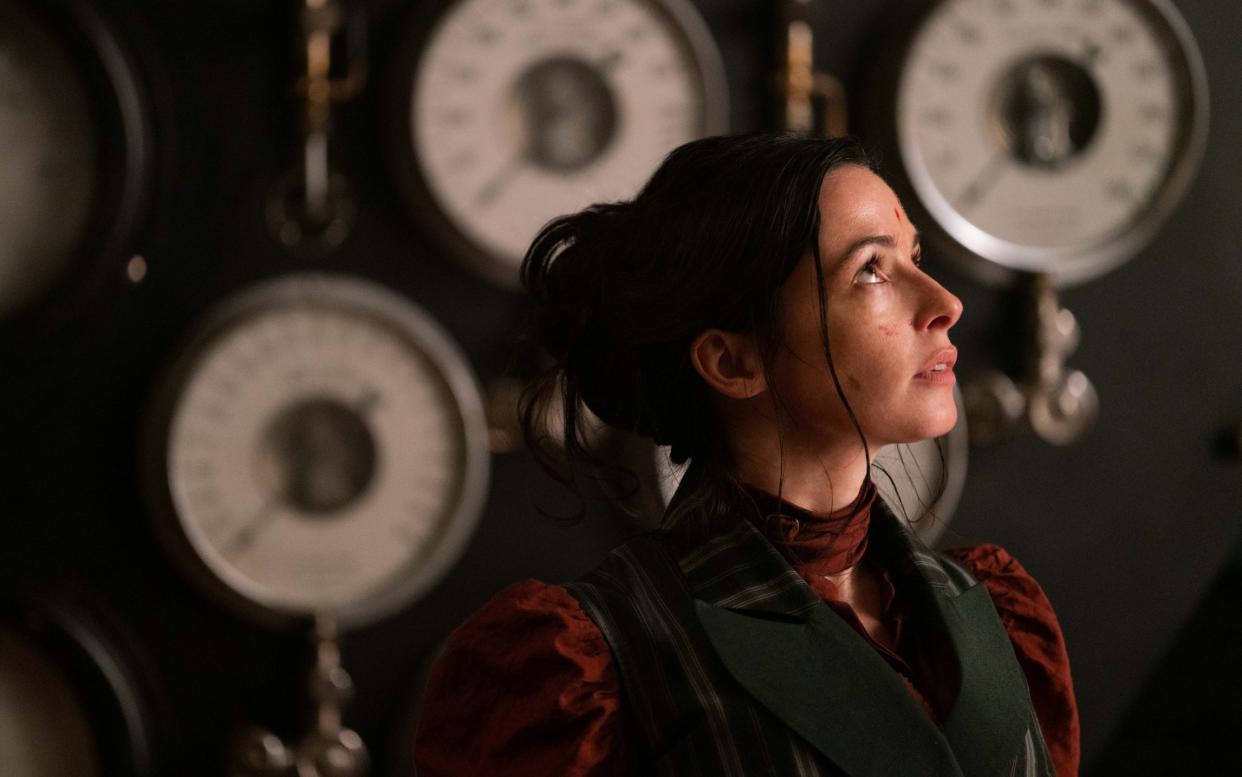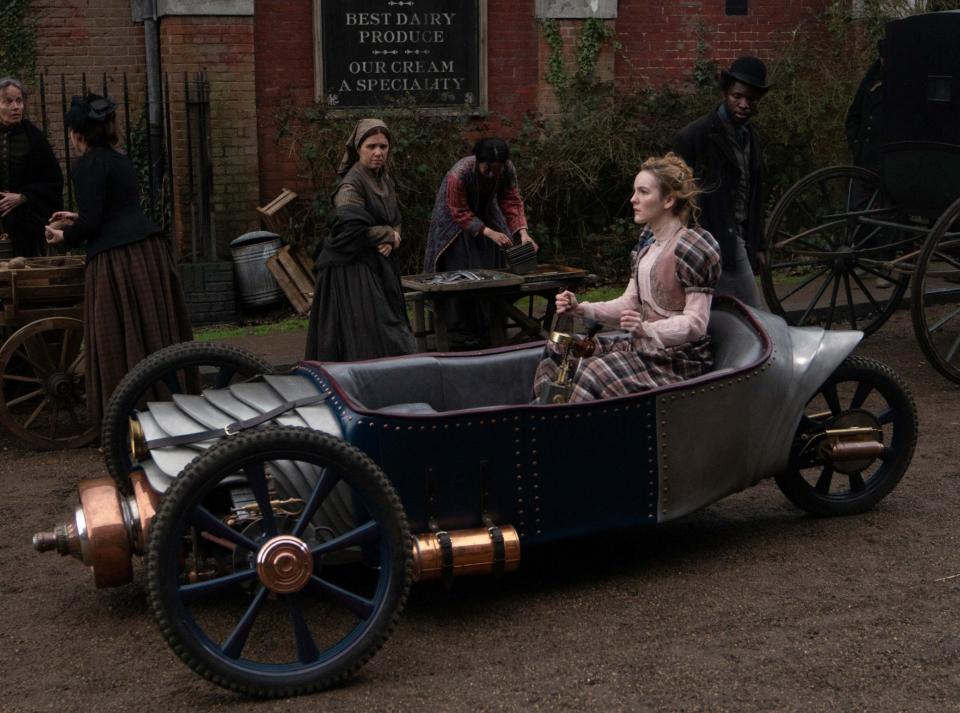The Nevers, review: Joss Whedon's Victorian sci-fi is overstuffed steampunk garbage

- Oops!Something went wrong.Please try again later.
- Oops!Something went wrong.Please try again later.
- Oops!Something went wrong.Please try again later.
- Oops!Something went wrong.Please try again later.
Joss Whedon wrote and produced Sky Atlantic’s glossy new Victorian fantasy saga, The Nevers, in addition to directing the first episode. It’s entirely possible he also looked after the catering and stayed back to wash the dishes. Yet none of this is mentioned in promotional material around the series, after Whedon was semi-cancelled last year amid rumblings of unpleasant behaviour on the set of previous productions.
Those productions included Buffy the Vampire Slayer, the cult Nineties show that claimed its part in the girl power movement with its portrayal of a plucky teenager fighting the forces of darkness. As conceptualised by Whedon, Buffy was essentially a one-woman Spice Girl, with less zig-a-zig-ah and more flying kicks and stakes through the heart.
But if Buffy was the small screen equivalent of ladette pop, then The Nevers represents Whedon’s prog rock phase. It is lumbering, lugubrious, incomprehensible – and, in true Seventies prog fashion, features a cameo by a giant spaceship. All that’s missing is a flying pig over Battersea Power Station.
The spaceship turned up at the end of the first episode, where, for reasons as yet unexplained, it imbued magical powers upon random 19th century Londoners. Or perhaps not so random. The recipients of these gifts tended to be either women or minorities. Stale white males were getting SFA from ET.
Sadly these supernatural abilities are, on the whole, stonkingly underwhelming. Heroine Amalia True (Laura Donnelly) could see the future via confusing flash-forwards. Meanwhile sidekick Penance Adair (Ann Skelly) was a steampunk inventor who could “perceive” electricity. She had also created a sort of Victorian Formula 1 car, allowing her and Amalia to whizz around London solving crimes.

America’s HBO network has pumped massive resources into The Nevers, presumably on the basis that a series about two Victorian lady detectives racing around London in a steampunk Formula 1 car couldn’t fail. But the wheels came off early in production amid reports of Whedon’s manipulative treatment of cast and crew on Buffy and on his 2017 Justice League film.
He quit The Nevers in November, citing “the physical challenges of making such a huge show during a global pandemic”. Alas replacement show-runner Philippa Goslett (co-writer of Rooney Mara revisionist Bible romp Mary Magdalene) has brought little clarity to a caper that, with Whedon at the helm, was already off to a muddled beginning.
The problem is that The Nevers tries to squeeze in too much. Amalia and Penance are members of an X-Men-esque academy for “the Touched” – ie those gifted magic powers by the aliens. Their mentor was portrayed by Olivia Williams in a role that audaciously rips off Patrick Stewart’s Professor Xavier in the X-Men movies, down to her wheelchair.
The Nevers next introduced James Norton as the personality-deficient dandy Hugo Swann. Wikipedia describes Swann as a “pansexual aristocratic young man”, so good on Wikipedia for making sense of the pilot.
Elsewhere the overstuffed storyline squeezed in a cabal of masked cultists dashing about stabbing people. And the perennial evils of racism were acknowledged in the character of Horatio Cousens (Zackary Momoh), who could heal frayed flesh but was unable to staunch the wound of 19th-century xenophobia.
The Crown’s Pip Torrens popped along, too, as a Racist White Man who adored the Empire and was rather down on anyone not humming Rule Britannia or rocking a massive gentleman’s moustache. Filling out the cast were Nick Frost, looking like he needed a shower as “The Beggar King”, and Amy Manson as a rogue “Touched” named Magneto…sorry, Maladie.
The Nevers is a huge mess, which has both far too much going on yet is also crushingly stupefying. The only bright points were Donnelly and Skelly, who shared an irascible chemistry. Given the quality of the script, their enthusiasm was arguably the true superpower on display.

